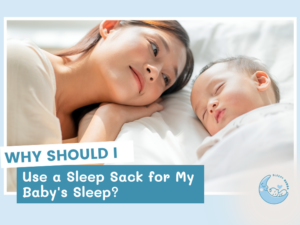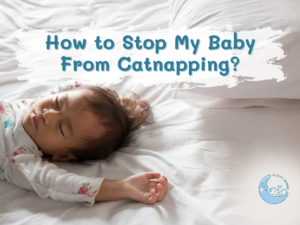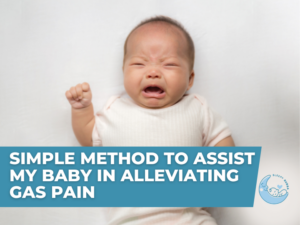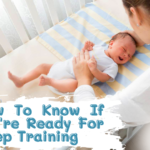Enquire Now with FREE 15 Mins Call
How To Get My Sick Baby to Sleep?
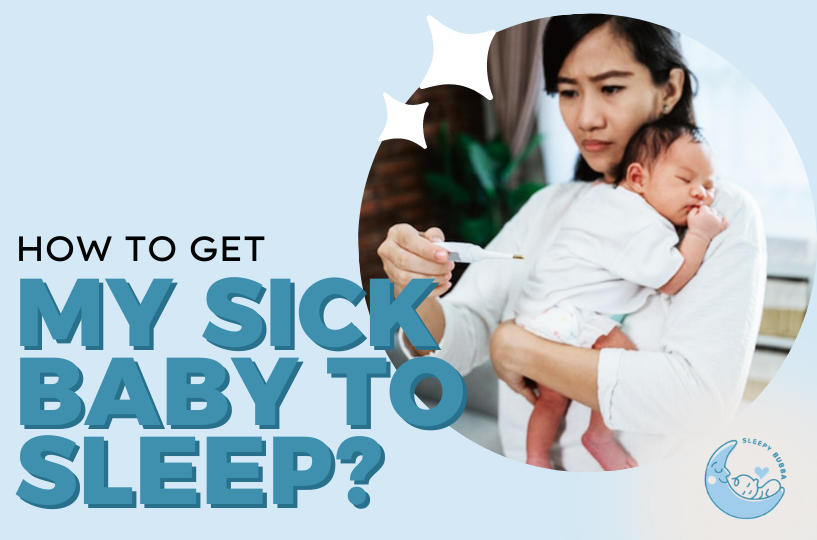
Parents who have had to face a sick baby know how tiring and challenging it is. A sick baby may be in great discomfort and this means they may be crankier and cry a lot more.
When babies are ill, they need to sleep even more than they normally do when they are healthy. Therefore, as parents, you want to help them as much as possible. The challenge arises when their illness affects their sleep patterns.
Parents of sick babies will find that their little ones may take longer than usual to fall asleep. Additionally, they may wake up several times during the night, often crying.
It takes a lot of patience to put your child to bed during this time. This includes putting them back to bed when they wake up throughout the night.
However, there are certain things that you can do to make your baby feel more comfortable, ease their symptoms and help them fall asleep more easily.
Consider using a nasal aspirator
A nasal aspirator is a simple suction device that parents can use to remove the thick mucus that is blocking their baby’s nasal airways. Sucking the mucus out will help your baby breathe easier and thus reduces their crying and discomfort.
It also makes feeding easier for them, as their noses will be cleared and they don’t have to break away from the teats to take deep breaths. So if you notice your baby breaking away often, crying or pushing away, you may want to consider that their noses are blocked.
Use a Humidifier
Don’t underestimate the ability of a simple humidifier to ease your baby’s symptoms. Dry air irritates your baby’s airways. A humidifier helps when your baby has a sore throat and stuffy nose. This is because moist air will loosen up the mucus that has built up in your baby’s nose and sinuses, making it easier to clear. Sore throats and coughs will be minimized too.
A simple humidifier can help your baby stay asleep longer, rather than waking up coughing or congested.
Medicate Properly
Medication will help manage and soothe your baby’s symptoms better than any external soothing actions. For example, babies who have a fever will benefit from child-safe paracetamol or other types of medication.
Of course, you should check with your paediatrician before administering any medication for your child, especially if your baby is under the age of 2.
Breastfeeding Builds Immunity
The best way to help your baby sleep better is of course to boost their immunity. This way, they can heal faster.
Natural breast milk contains antibodies which help your baby’s body get rid of the bugs that are making them sick.
Make Sure They Are Comfortable
Make sure your baby has a quiet, comfortable place to rest or sleep. For example, an air-conditioned room that isn’t too cold or warm. Additionally, you can dress your little one in comfortable pyjamas. All these basic needs should not be taken for granted.
Also, make sure your baby’s sleeping area is clean when attempting to put them to bed. There should be nothing that can cause a bad smell and make them uncomfortable.
Notice Their Sleep Cues
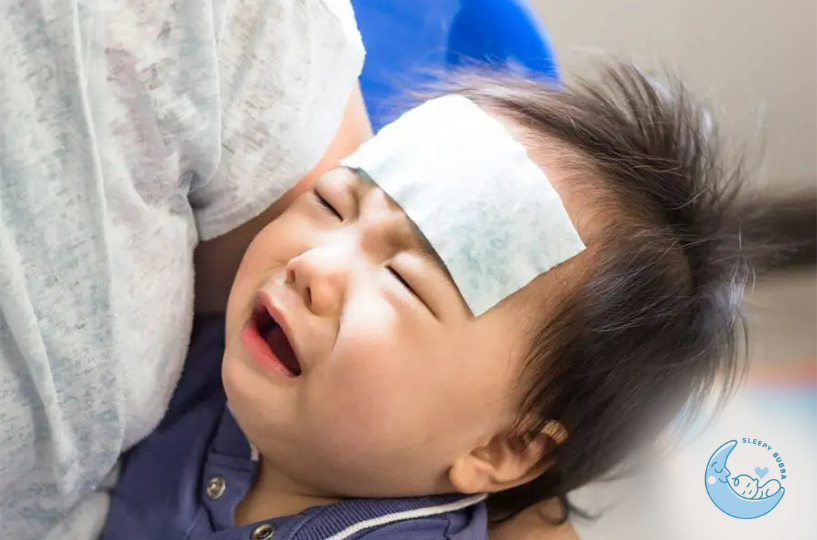
When your baby is sick, they tend to be sleepier and they need to sleep more than usual. If you see your baby showing sleep cues before they typically do, get them settled in. These signs of tiredness can include them being fussy, refusing to play, rubbing their faces, pulling at their ears or zoning out.
A baby’s sleep cues are unique to each child. Additionally, they may not always be obvious signs related to sleepiness. Therefore, being aware of your baby’s sleep cues is the first step.
Don’t Keep Them Awake
When your baby is sick, they need to sleep more as their bodies are recovering. Sleep is an integral part of the body’s mechanism to heal and the immune system’s ability to fight off the bugs.
The original sleep pattern that you may have established for your child might be disrupted. They will be sleeping more than usual and may be sleeping at times when they were previously awake.
It is important not to start sleep training when your baby is unwell.
Let Your Baby Sleep on His Back
You should always put your baby to sleep on their back, even when they’re sick. Some parents may be worried that their children will face the risk of choking, especially if they vomit. However, it has been shown that babies who feel sick know how to turn their heads to the side if this happens.
Sleeping on their stomachs is actually a lot riskier as their airways may be blocked and should be avoided. Additionally, you may want to keep their heads elevated as this may help them feel more comfortable.
Continue Sleep Routine
Babies thrive on routines. They like regularity and familiarity. The last thing they need when they are sick is for their normal routines to disappear too. Therefore, it’s still important to continue the usual routines that you perform with your baby. It may help to calm them and settle them down.
You can also consult a sleep consultant in Singapore to help establish sleep routines for your child and find out why they’re so important.
Don’t Leave Your Baby When They Wake Up
When your child is unwell, forgo any sleep training rules that you use, you need to attend to them immediately if they wake up crying. This is to ensure that they’re not in danger or discomfort.
Sleep Can Heal Your Baby
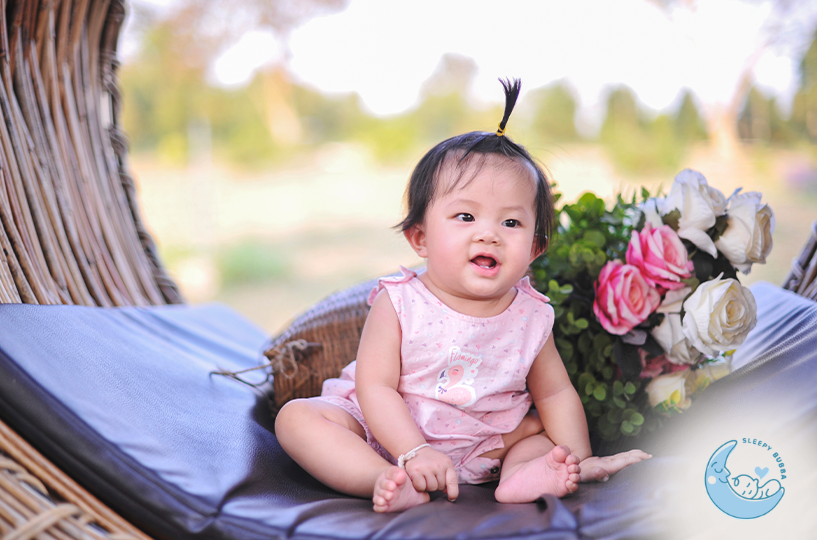
No matter how challenging it gets, remember that the most important is to ensure that your baby is safe and recovers from the illness as soon as possible. All you have to do is make things easier and more comfortable for them.
In any case, you can always seek the help of a baby sleep specialist in Singapore like here at Sleepy Bubba. Book a free Discovery Call with me to find out what the standard baby sleep consultant price is like and how you can get started.

